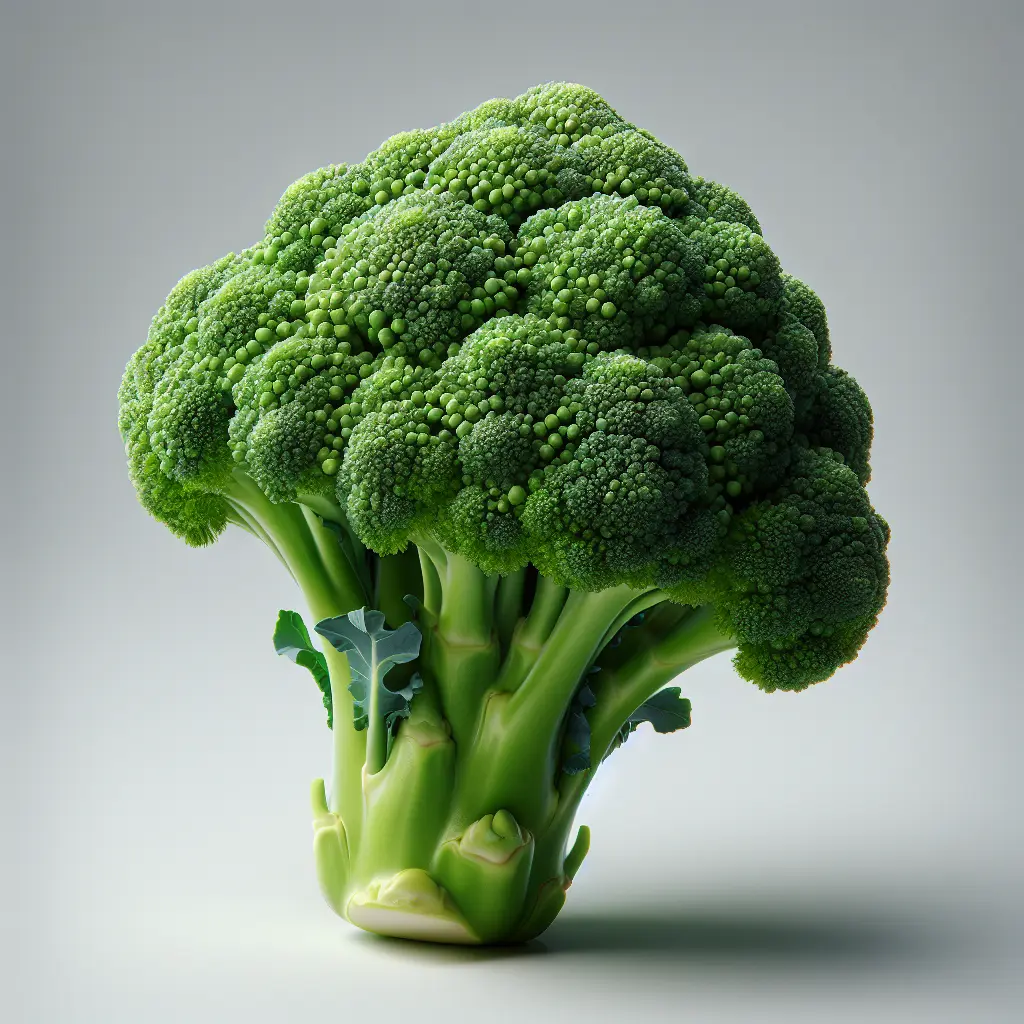Broccoli: A Nutrient-Packed Superfood
Broccoli is a cruciferous vegetable that is closely related to cauliflower, cabbage, and kale. It is a good source of vitamins A, C, and K, as well as fiber, potassium, and folate. Broccoli has been shown to have several health benefits, including reducing the risk of heart disease, cancer, and type 2 diabetes.
Nutritional Value
Broccoli is a low-calorie vegetable that is packed with nutrients. One cup of broccoli contains only 30 calories, but it is a good source of several vitamins and minerals. Broccoli is particularly rich in vitamin C, which is important for immune function, skin health, and wound healing. It is also a good source of vitamin A, which is important for vision and eye health. Broccoli is also a good source of fiber, which is important for digestive health and can help to lower cholesterol levels.
Nutritional value of broccoli per 100 grams:
- Calories: 34
- Protein: 2.8 grams
- Fat: 0.3 grams
- Carbohydrates: 6 grams
- Fiber: 2.6 grams
- Vitamin C: 89 mg
- Vitamin K: 106 mcg
- Folate: 63 mcg
- Potassium: 316 mg
Health Benefits
Broccoli has been shown to have several health benefits, including:
-
Reduced risk of heart disease: Broccoli contains several compounds that have been shown to reduce the risk of heart disease. These compounds include antioxidants, fiber, and potassium. Antioxidants help to protect cells from damage, fiber helps to lower cholesterol levels, and potassium helps to lower blood pressure.
-
Reduced risk of cancer: Broccoli contains several compounds that have been shown to reduce the risk of cancer. These compounds include antioxidants, fiber, and sulforaphane. Antioxidants help to protect cells from damage, fiber helps to remove toxins from the body, and sulforaphane has been shown to inhibit the growth of cancer cells.
-
Reduced risk of type 2 diabetes: Broccoli contains several compounds that have been shown to reduce the risk of type 2 diabetes. These compounds include fiber, chromium, and antioxidants. Fiber helps to slow down the absorption of sugar into the bloodstream, chromium helps to regulate blood sugar levels, and antioxidants help to protect cells from damage.
How to Cook Broccoli
Broccoli can be cooked in a variety of ways. Some of the most popular methods include:
-
Steaming: Steaming is a great way to cook broccoli because it preserves the nutrients and flavor of the vegetable. To steam broccoli, place it in a steamer basket over a pot of boiling water. Cover the pot and steam the broccoli for 5-7 minutes, or until it is tender.
-
Roasting: Roasting is another great way to cook broccoli. To roast broccoli, preheat your oven to 400 degrees Fahrenheit. Toss the broccoli with olive oil and salt and pepper. Spread the broccoli on a baking sheet and roast for 15-20 minutes, or until it is tender and slightly browned.
-
Sautéing: Sautéing is a quick and easy way to cook broccoli. To sauté broccoli, heat some olive oil in a skillet over medium heat. Add the broccoli and cook for 3-5 minutes, or until it is tender.
Broccoli is a versatile vegetable that can be enjoyed in a variety of ways. It is a nutritious and delicious addition to any meal.
How many calories are in Broccoli?
Each 1 floret of Broccoli contains 3.5 calories.
Broccoli Nutritional Information
| Nutrient | Amount per 1 floret (10g) |
|---|---|
| Calories | 3.5 Calories |
| Protein | 0.2g |
| Fat | 0g |
| Saturated Fat | 0g |
| Cholesterol | 0mg |
| Carbohydrates | 0.7g |
| Dietary Fiber | 0.3g |
| Sugar | 0.1g |
| Sodium | 0.0041mg |
| Potassium | 0.0293mg |
| Calcium | 0.004mg |
| Iron | 0.0001mg |
